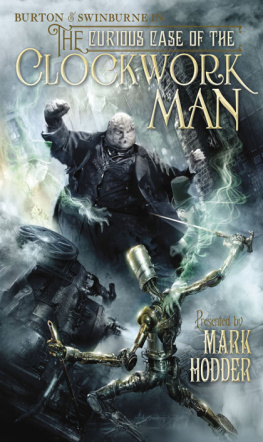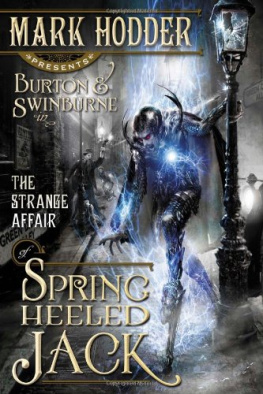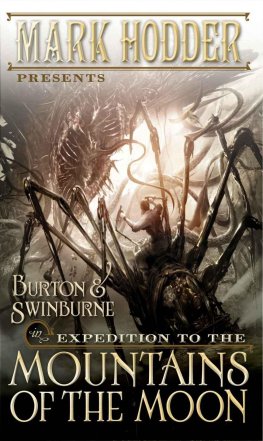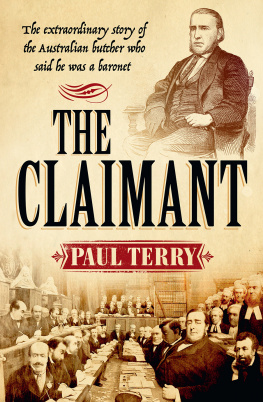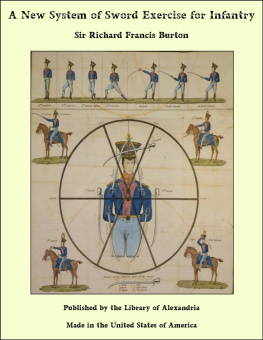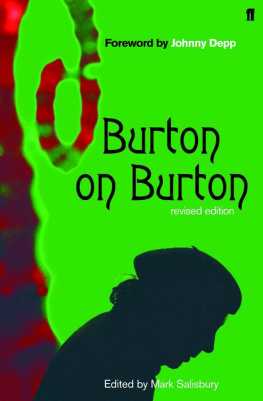
M ARK HODDER is descended from John Angell, a pirate who sailed with Captain Kidd. According to family legend, Angell invested most of his ill-gotten gains in land, particularly in Angell Town near Brixton in London. Anyone who can provide irrefutable legal evidence that they are descended from Angell will inherit the land, which is estimated to be worth at least 64,000,000. Over the course of generations, members of the family have lost a fortune trying to prove the link, and many people who have no connection with the family at all have adopted the name in order to make a claim. As a result, the family tree is extremely tangled and a legal connection to the pirate's treasure is almost certainly impossible to establish.
Mark's great-grandfather was Doctor Albert Leigh, who went to medical school with Sir Arthur Conan Doyle. The two men were great friendsthey joined the Freemasons togetherand Sir Arthur presented Albert with a complete set of Sherlock Holmes first editions, all inscribed: To dear Leigh, from your friend Doyle. They would fetch a fortune at auction today. Unfortunately, upon Leigh's death in 1944, his housekeeper, an actress, made off with the volumes.
Thus it is that two great fortunes have eluded Mark Hodder.
Denied money-for-nothing and the luxury, idleness, and indulgences it would bring, Mark lives in Spain, teaches English as a foreign language, and writes novels. His first Burton & Swinburne adventureThe Strange Affair of Spring Heeled Jackwas published in 2010.

M y thanks to Rohan McWilliam, whose excellent The Tichborne Claimant: A Victorian Sensation (Hambledon Continuum, 2007) provided a wealth of background material, song lyrics, and quotes for this story.
George Mann, Lou Anders, and Emma Barnes, you are legends. Mike Moorcock, there's simply no way to adequately thank you.
As in the previous Burton and Swinburne tale, I have taken great liberties with respected (and some not so respected) famous names from the Victorian era. To any descendants of those whose reputations I have toyed with, I offer my apologies and an assurance that this is intended as speculative fiction and very definitely not biography. The alternative history imagined within these pages is a place where the inhabitants of Victorian England encountered different challenges and opportunities from those they met in real life, and have thus developed into very, very different people. They are quite unlike their historical counterparts and should not be in any way regarded as accurate depictions of the people who really lived.
In particular, I would like to offer respect and admiration to the current generation of the Tichborne/Doughty family. They still live in, and struggle to maintain, Tichborne House, which is a massively expensive undertaking, especially in these economically troubled times. They also continue the tradition of the Tichborne Dole, donating flour every year during the Feast of the Annunciation.

SIR RICHARD FRANCIS BURTON (18211890)
862 was a particularly bad year for Burton. Newly married to Isabel Arundell, he was separated from her for almost the entire twelve months. As consul on the disease-ridden island of Fernando Po, he spent much time exploring West Africa and was exposed to areas that had been decimated by the slave trade. As ever, he managed to commit his astute observations and sometimes extremely harsh opinions to paper, resulting in three books: Wanderings in West Africa, Abeokuta and the Cameroons Mountains, and A Mission to Gelele, King of Dahom.
ALGERNON CHARLES SWINBURNE (18371909)
Due in no small part to the efforts of Richard Monckton Milnes, 1862 was the year that Swinburne's maturing poetry gained greater critical recognition. It was not, however, an easy year for him personally. His great friend Lizzie Rossetti (ne Siddal) died, and his one and only marriage proposal was rejectedthe recipient, whose identity remains a mystery, laughed in his face. His alcoholism was also reaching epic proportions by now, making his behaviour erratic in the extreme.
Wouldst thou not know whom England, whom the world, Mourns?
is from the poem Elegy, which appeared in Astrophel and Other Poems in 1904. It does not refer to Sir Richard Francis Burton.
If you were queen of pleasure
is from the poem A Match, which appeared in Poems and Ballads in 1866.
CHARLES BABBAGE (17911871)
The man who is regarded as the father of computing was a complex personality, haunted by personal tragedies (including the death of five of his eight children) and ongoing funding problems. Some of his most groundbreaking designs, such as his Difference Engine, were never built during his lifetime. The unfinished status of so many of his projects can, in part, be blamed on financial woes, but Babbage's eccentric character certainly didn't help matters. Among his many quirks, he possessed a distaste for common people and an aversion to the noise they produced. His ire was particularly directed at street musicians.
Babbage was never knighted.
In 1862, he was busy writing his autobiographical Passages from the Life of a Philosopher.
THE MEASUREMENT OF BRAINWAVES
The understanding and measurement of the brain's electrical activity properly began with a British physician, Richard Caton (18421926), who presented his findings to the British Medical Journal in 1875.
THE TICHBORNE AFFAIR
The sensation of the age, the Tichborne affair commenced in 1866, when the Dowager Lady Tichborne received a letter from a man purporting to be her long-lost son, Roger. This man, who was in all probability Arthur Orton, a morbidly obese butcher from Wapping, had relocated to Australia some years before. When he arrived back in England to claim the Tichborne estates, he was strongly opposed by the establishment but fervently supported by the working classes. Two trials followed. During the first, which lasted 102 days, the Claimant failed to prove his identity and the Tichborne inheritance was denied him. The second triala criminal prosecutionlasted 188 days. Arthur Orton was found guilty of perjury and sentenced to fourteen years of hard labour (he served ten).
Despite the overwhelming evidence against him (not least being the fact that he looked nothing like Sir Roger Tichborne), the Claimant became a great favourite among the lower classes, and was the subject of humour, songs, and plays. His trial exposed the weaknesses of the aristocracy and led many ordinary men and women to the conviction that he was the victim of a conspiracy.
The Tichborne/Doughty/Arundell family weathered the storm, though they became doubly vigilant that the annual Tichborne dole should never be missed.
HERBERT SPENCER (18201903)
One of the most influential, accomplished, and misunderstood philosophers in British history, Herbert Spencer melded Darwinism with sociology. He originated the phrase survival of the fittest, which was then taken up by Darwin himself. It was also adopted, misinterpreted, and misused by a number of governments, who employed it to justify their eugenics programs, culminating in the Holocaust of the 1940s. Spencer, unfortunately, thus became associated with one of the darkest periods in modern history.
Next page
